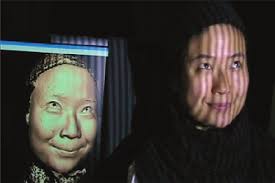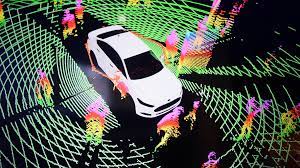Welcome
Introduction to Image Science, Spring 2025
Jump to: Course Description | CourseLogistics | Lecture and Homework Schedule



Course Description
The course covers the basics of image science. This includes the theoretical and mathematical foundations of image science, as well as their application to the analysis of modern (computational) imaging systems. Concrete examples from medical imaging, industrial inspection, remote sensing, virtual reality, or microscopy will be introduced and discussed.
Course Goals: By taking the course, students are expected to gather a broad “toolbox” of basic optical, mathematical, and computational principles used in imaging science. The goal is that students can apply these tools to concrete future tasks they might face in industry or their future research.
Students will be able to identify the measured object properties and how the respective imaging system collects and processes the captured data to extract the desired information. Moreover, students will learn about the analysis of imaging systems and the concept of task-based assessment of image quality.
Prerequisites: This course is intended for graduate students in optical sciences or engineering with an appropriate mathematical background at the level of advanced calculus.
Program: The four key parts of the course include (tentative outline):
Part I: Mathematical formalism of image science
- Image formation
- Objects as vectors in a vector space, image formation as a continuous to continuous or continuous to discrete mapping from an object vector space to an image vector space
- Eigenfunctions, linear systems, Fourier transforms
Part II: The role of optics and computation in modern imaging science
- Indirect imaging, inverse problems, iterative algorithms
- Radiometry
- Geometrical optics description of imaging
- Coherent and incoherent imaging, diffraction
- Physical optics description and fundamental limits
- Digital imaging, sampling, image detectors, displays
- Image processing
Part III: Modern (computational) imaging systems
- X-ray imaging, computed tomography
- Microscopy
- Time-of-Flight cameras, Non-Line-of-Sight imaging
- (Multi-wavelength) Interferometry, optical coherence tomography
- Remote sensing
- Triangulation (structured light)
- Deflectometry and Photometric Stereo
- Neuromorphic Imaging / Event Cameras
- Neural Networks in Imaging
Part IV: Observers and task-based image quality assessment
- Noise in imaging systems
- Classification and estimation tasks, ideal observer
- Image quality, task-performance evaluation
Course Logistics
Class: M, W 2:00 – 3:15 in Meinel Building West Wing 307
Material made available: http://d2l.arizona.edu
Instructors: Florian Willomitzer
TA: James Taylor
Contact Information Prof. Willomitzer:
Room: Meinel 629
Email: fwillomitzer@arizona.edu
Office hours: In person or via zoom. Send email to reserve a 15min slot.
Contact Information James Taylor:
Email: jrt4@arizona.edu
Office hours: tba
Grading: There will be no midterm or final exam.
Instead, the course provides a total of 6 substantial homework assignments to evaluate the learning success of students. Homework assignments will be mainly based on programming, but knowledge questions and analytical calculations (e.g., for validation of results) will be asked as well. Each of the 6 homework assignments counts 1/6 towards the final grade, i.e., homework assignments with more achievable total points do not count more than assignments with fewer achievable points (in other words: all assignments will be “normalized” for grading).
Opportunities for bonus points may occur at select times during the semester.
Policy: Late homework will not be accepted without prior instructor approval. Students may study and work together, but homework must be completed and turned in independently. Direct plagiarism on homework assignments is not acceptable. The University’s Student Code of Academic Integrity applies to this class and should be reviewed by each student. Instructor and TA will use the latest tools to detect cases of suspected academic dishonesty including plagiarism, or altering graded homework will be referred to the appropriate College Dean. The academic penalty for academic dishonesty is an “F” grade. Homework will only be re-graded when there is evidence of a grading error. The instructors reserve the right to re-grade an entire homework or test.
Lecture and Homework Schedule
Please visit D2L for the updated Homework and lecture schedule

